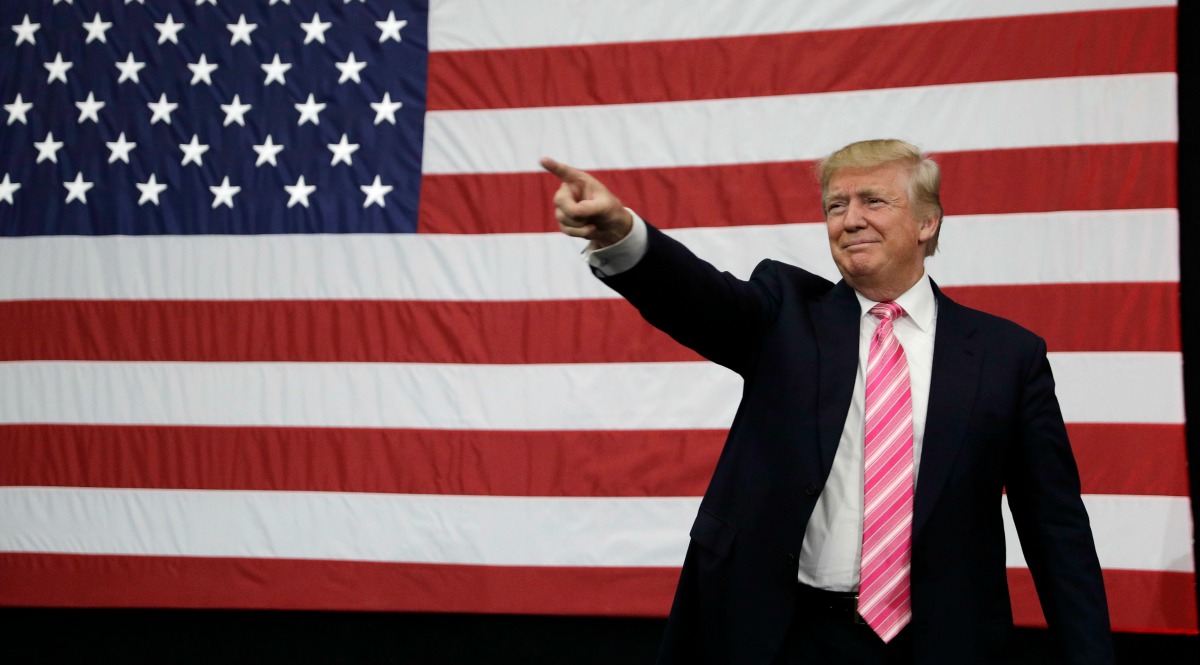Hillary Clinton’s presidential campaign criticized Donald Trump for putting “his own business interests ahead of the national interest” in response to revelations that Trump’s real-estate organization had done business with an Iranian bank later linked to terrorism and Iran’s nuclear program.
The campaign was reacting to a report from the International Consortium of Investigative Journalists and the Center for Public Integrity that the Trump Organization had rented office space in New York from 1998 to 2003 to Bank Melli, a bank that U.S. authorities designated in 1999 as an Iranian government-controlled business. U.S. officials later alleged that the bank had been used to move money to support Iran’s nuclear program and an arm of the Iranian Revolutionary Guard that has sponsored terror attacks.
“This report exposes Trump’s hypocrisy on Iran,” Jake Sullivan, a senior policy advisor to the Clinton campaign, said in a written statement. “As with Cuba, he talks a big game but when it comes to making a buck, he’ll deal with anyone. The conflicts of interest presented by Trump’s business and his own desire to boost his bottom line above all else demonstrate clearly why voters should know more about Trump’s business deals and what they mean for how he’ll govern.”
Officials at Trump’s campaign and the Republican National Committee did not immediately respond to requests for comment. Carl Paladino, Trump’s New York state campaign co-chairman and a prominent real estate developer, wasn’t immediately available, an associate said.
Trump inherited Bank Melli, one of Iran’s largest state-controlled banks, as a tenant when he purchased the General Motors Building on Fifth Avenue in Manhattan in July 1998.
The controversy over Trump’s five-year juncture as Bank Melli’s landlord isn’t about whether the Trump Organization broke the law in renting space to the Iranian bank. The ICIJ/CPI story noted the possibility that Bank Melli may have obtained a U.S. Treasury Department license allowing it to maintain a skeletal presence in the U.S. despite a U.S. embargo generally forbidding Americans from doing business with the bank and other Iranian entities.
New documents received today by ICIJ and CPI indicate that the U.S. Treasury Department issued a license in March 1996 that likely would have allowed it to make rent payments to maintain its New York office space. The license allows the bank “to conduct activities related to research in the United States” and act as a liaison for U.S. holders of bank accounts held by Bank Melli operations outside the U.S. The license gave Bank Melli permission to open an account at the Bank of New York that would allow it it pay out funds to cover “overhead expenses.”
Richard Nephew, a former U.S. State Department official who spent nearly a decade working on Iran sanctions in the administrations of George W. Bush and Barack Obama, said whether the rent payments collected by Trump were legal is “not the real issue. The real issue, of course, is that he says one thing and does another when his interest is implicated.”
News reports published in recent months have raised questions about Trump Organization’s dealings with foreign nations that Trump has harshly criticized. Newsweek reported in September that a company owned by Trump violated economic sanctions against Cuba with a business trip to the island in 1998, shortly before he gave a speech in Miami expressing his support for the embargo.
On the campaign trail, Trump has skewered President Barack Obama and Clinton alike for their dealings with Iran. “President Obama refuses to answer question about Iran terror funding. I won’t dodge questions as your President,” Trump tweeted on Aug. 4.
Trump has called Iran a “big enemy” and criticized Clinton for her support for the historic 2015 Iran nuclear agreement, calling it “one of the worst deals ever made by any country in history.”
Joe Hunter, spokesman for Libertarian presidential candidate Gary Johnson, said in a statement late this afternoon that the “constant obsession with both Mr. Trump’s and Ms. Clinton’s financial dealings all gets to the notion many voters want to reject, namely cronyism and deals and questionable ties that combine to create distrust and cynicism. Sadly, none of these really have much to do with issues Americans care about, other than trust, which is big one.”
Dave Levinthal is senior political reporter at the Center for Public Integrity.
Read more about the impact from ICIJ’s investigations, and find out how you can support ICIJ’s work
Find out first! Receive ICIJ’s investigations by email
